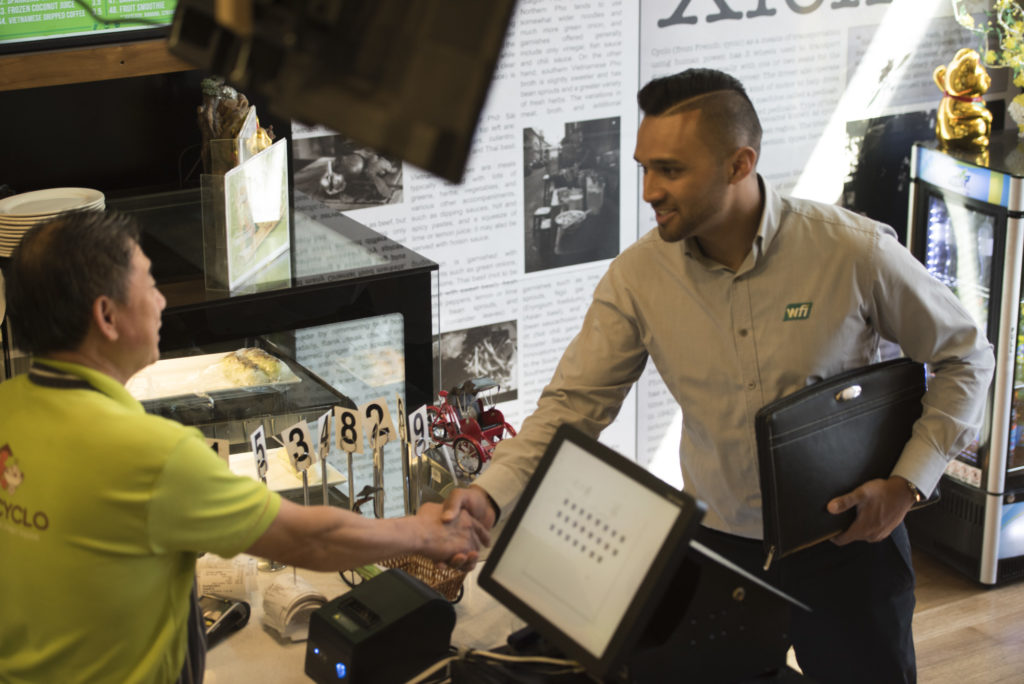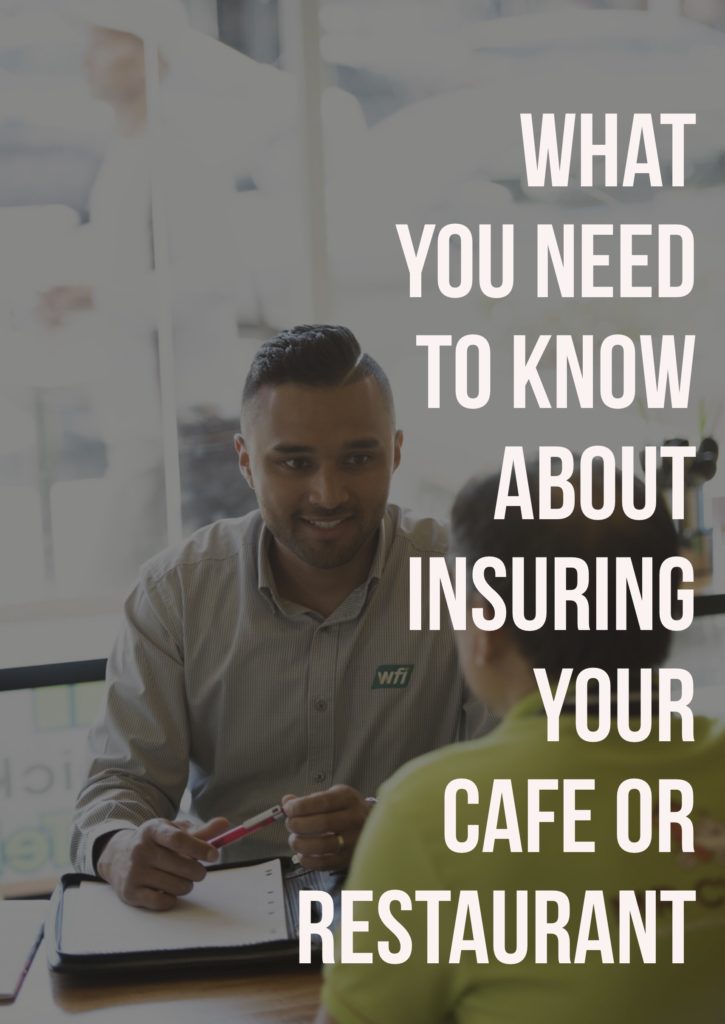Business Essentials: What You Need to Know About Insuring Your Café or Restaurant
They say that only two things are certain in life: death and taxes. When it comes to doing business, we can add another item to the list: insurance. These days, it’s a necessary chore, but many business owners don’t find the topic very interesting or pleasant to talk about.
Contrary to popular belief, some insurance companies out there honestly do want to make things easier for their clients. One such company is WFI Insurance, and we spoke with regional manager Carley Byrnes, who focuses primarily on hospitality insurance for their office in Sydney, about how to navigate insurance.
Invest the Time and Research
 Business owners in the hospitality industry often lead busy lives, and opening up a new business can be particularly stressful and time-consuming. So when it comes to insurance, most people just do it over the phone and want to get it over with as quickly as possible. Carley says this is not a good way to go about it. If you invest some time into research and money into a good policy right at the start, in the long run it may pay off – especially if you have to make an insurance claim in the future.
Business owners in the hospitality industry often lead busy lives, and opening up a new business can be particularly stressful and time-consuming. So when it comes to insurance, most people just do it over the phone and want to get it over with as quickly as possible. Carley says this is not a good way to go about it. If you invest some time into research and money into a good policy right at the start, in the long run it may pay off – especially if you have to make an insurance claim in the future.
Most café owners don’t know much about insurance going in. And insurance isn’t the most exciting topic. But it’s necessary to review your coverage thoroughly so you know what incidents you can file claims for.
Establish Good Relationships
To establish a good relationship with your insurance company, get in contact early on, and connect with someone that will know your business. An insurer focused on hospitality, and a manager who knows your business in particular, will make things a lot easier for you in the long run.
Keep up with Business Growth
Many business owners in the hospitality industry also don’t keep up with their business growth. As your business grows, your insurance policy needs may change. Carley recommends reviewing your insurance policy when it comes time for the annual renewal, and speak with your insurance manager about whether you need to make any changes to your existing policy.
Get Fire Insurance…
You can cover your business for lots of different things, but Carley strongly recommends businesses to cover two main areas. Insurance for fire and weather-related disasters is a must – especially in the hospitality businesses, where kitchen fires are a known hazard. Fires also tend to put your business out of commission for days or even weeks on end, which can really affect your bottom line. Insuring for fires will better guarantee that you’ll be able to keep your business up and running long after the repairs are made.
…And Public Liability Insurance
The other category of claims Carley recommends covering for tend to be a bit complicated, and very messy if you find yourself not covered for it. Public liability insurance overs a wide range of accidents and incidents that your business could be held liable for. For restaurants and coffee shops in particular, where a lot of people come and go, accidents may happen, and in case someone sues for liability, coverage will come in handy.
Mind Your Neighbors
Why else is it important to have good insurance coverage? Well, unless your business completely stands on its own, anything that occurs in your business – especially fires or other such disasters – may affect your neighbors, as well. Places such as business complexes and shopping malls are keen to get things back up and running quickly, and good insurance can help ensure that.
Be Prepared
 Shopping for a new policy can also be quite daunting for a new business owner in any industry. But searching for information these days is as easy as plugging search terms into Google, so go online and peruse the website. If it seems like a good fit, then ring them up for more information and a quote.
Shopping for a new policy can also be quite daunting for a new business owner in any industry. But searching for information these days is as easy as plugging search terms into Google, so go online and peruse the website. If it seems like a good fit, then ring them up for more information and a quote.
If you already have a policy, you can have that on hand to make it easier for comparison, and the area manager will make suggestions to improve and refine it. If you’re a new business, get as much paperwork as you can together in terms of what your expected turnover is, how many employees you think you’ll have, cost of your fit-out, and so on in order to get an accurate insurance estimate.
Keep Records
Record-keeping is essential to ensuring that you get good insurance. Take photos of your establishment to record what items you have inside just in case you do need to file a claim, and retain receipts of all the items you purchase. Many of us don’t always do this, but while it’s not terribly likely to happen, nothing is impossible. So it’s always best to be prepared, so that when you file a claim, you know exactly what to claim for.
If you want to learn more about WFI Insurance, visit wfi.com.au and find your area manager. You can also contact Carley directly if you have any questions or comments.
Carley’s Key Takeaways
-
When speaking with an insurance representative, bring your paperwork – that way, you’re better prepared in case you have to make some changes.
-
Find an insurance agent who knows your business and knows you, as well. If you have a more personal connection with your insurer, you get more personal and prompt service, as well.
-
Don’t rush into a policy – review your policy before you buy it.
-
Take photos and video of your equipment and merchandise when you first sign up for insurance – that way you know what you have and the condition of everything well before you have to file a claim.
-
Make sure you’re insured for fire and public liability – the two most common insurance incidences you’re likely to have.
-
Insuring against machine breakdown is also a necessity for those in the hospitality industry – you don’t want to miss a beat just because something’s broken.
-
Put in as much time and effort as possible into finding out what your insurer actually covers, so that in the long run, you’ll save money.
-
Be mindful of your business neighbors – anything that affects your establishment may affect them, as well.
-
Engage in risk management when setting up your business – putting preventative measures in place such as CCTV may help lower your premiums.
-
As your business grows, evaluate your policy annually to see what coverage you need to add and drop.
Podcast: Play in new window | Download
Subscribe: RSS










